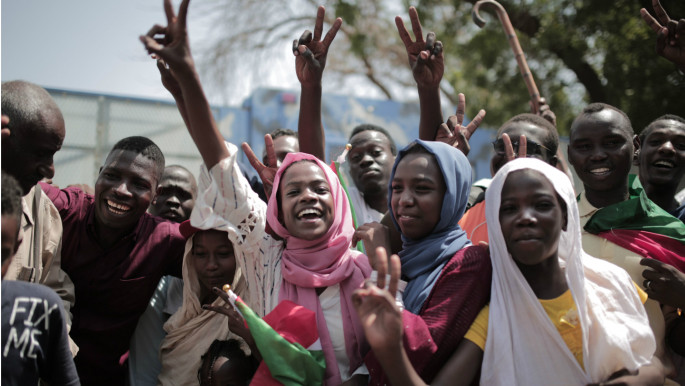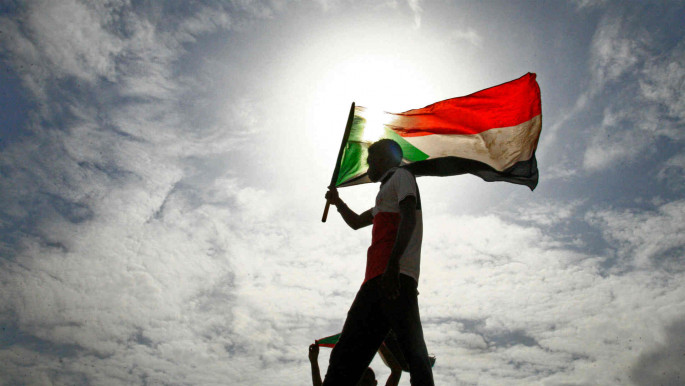Sudan's transition to democracy: Will it be smooth?
Wednesday August 21 was a remarkable day for Sudan. Nine weeks after Bashir's removal from power, and after turbulent times including the June 3 sit-in massacre in which hundreds were killed and a few more are still missing, Sudan's Sovereign Council was finally sworn in and Prime Minister Abdalla Hamdok, was appointed.
The formation of the Sovereign Council and appointment of the Prime Minister are significant steps in Sudan's transition to democracy.
Many Sudanese in Khartoum took to the streets to welcome and greet Abdalla Hamdok who arrived on Wednesday afternoon and was sworn in later the same day.
With the mediation of Ethiopia and the African Union, negotiations between the Transitional Military Council (TMC) and the Forces for Freedom and Change (FFC) culminated in the signature of Political and Constitutional Declarations, signed on August 17.
The signing in was witnessed by the presidents of Chad, Kenya, Central African Republic, South Sudan, the prime ministers of Egypt and Ethiopia, as well as Turkey's minister of foreign affairs and Saudi Arabia's minister of state for foreign affairs.
The signature of these documents received support from the UN Security Council, the EU, and the Troika (the US, UK and Norway). Saudi Arabia also pledged its support with Saudi Crown Prince, Mohammed bin Salman, who phoned the TMC and FFC to congratulate them and offer his support.
Per the timeline agreed upon by the TMC and FFC, the Sovereign Council should have been sworn in on August 18, but because the FFC was unable to agree on the names of its representatives on time, the council was formed on three days later.
 |
|
| Read also: Inside the sit-in that brought down Sudan's dictator Bashir |
The Council is made up of 11 members – five from the TMC, five from the FFC and the 11th member is agreed upon by both the TMC and the FFC. Per the provisions of the Constitutional Declaration, the Sovereign Council has limited and ceremonial powers. Executive powers are vested in the cabinet. A transitional assembly will be in place in no more than 90 days after the formation of the Sovereign Council and the Cabinet and until this happens, these two bodies are entrusted with the legislation.
Who are the members of the Sovereign Council?
Abdel Fattah al-Burhan is the Chairman of the Transitional Military Council and will chair the Sovereign Council for the first 21 out of 39 months. He was the chairman of the TMC and before that he was the Chief of Staff for the Sudan Armed Forces (SAF) until April 11.
Mohamed Hamdan Dagalo, better known as Hemedti, was the commander of the Rapid Support Forces and was TMC's Deputy Chairman.
The remaining three, Shamseldin Kabbashi, Yasser Hassan al-Attan and Ibrahim Gabir were senior military officers as well as members of the TMC.
As for the civilian members of the Sovereign Council, Mohamed el-Faki is a graduate of University of Khartoum, with an MA in political science. He was a journalist working in Qatar until August 19.
Mohamed el-Taiashi, another graduate from the University of Khartoum, was the president of the university's students union in 2003-2004, a former member of the Umma National Party and was living in London as refugee since 2009.
Siddig Tawir is a professor of physics at Al-Nilain University and a member of the Arab Baath Socialist Party, while Aisha Musa was an English language teacher, translator and woman rights activist.
Hassan Sheikh Idris is a member of the Forces for Freedom and Change opposition coalition. A legal expert and a former leader in the Umma National Party, he served as the minister of housing and public works until 1989.
The last member, Ragaa Nicola is a Christian Copt and judge. She worked as a legal counsel in the Justice Ministry. She is the sixth member of the SC and her membership was agreed upon by both the TMC and FFC as stipulated in the agreements mediated by Ethiopia and the African Union.
Abdalla Hamdok, Sudan's new Prime Minister, came to the position with an impeccable record: a PhD in economics from the University of Manchester, he served as senior government official at the Ministry of Finance and National Economy in Sudan before being sacked by Bashir's regime in 1989. He was also the senior adviser to the ILO in Zimbabwe, a senior economist at the African Development Bank, the Regional Director of IDEA, the Deputy Executive Secretary of the United Nations Economic Commission for Africa (UNECA) and the Acting Executive Secretary for UNECA. He is also acclaimed for his work in good governance and for fighting corruption in Africa.
So what are the next steps?
 |
|
| Read also: Nurturing Sudan's fledgling power-sharing accord |
Immediately after his appointment, Abdalla Hamdok started his consultations in a bid to choose his team as he was required to have his cabinet by August 31.
Hamdok's nomination by the FFC was unanimous indicating that he commands the respect of all FFC constituents.
FFC agreed that the number of ministries during the transitional period will be 20 or less, and that Hamdok will be provided with a list of three candidates for each ministry and he will chose one candidate.
He stated that if the three candidates provided by the FFC do not meet his criteria, he would send them back, indicating that he will not have unqualified members in his cabinet.
Hamdok said that achieving peace and addressing Sudan's economic crisis are his priorities. These are also the priorities of the Sovereign Council whose members reiterated their commitment to achieving peace.
The Revolutionary Front (RF), one of the main armed groups said they are ready to talk with the government. It is to be noted that the RF is part of the FFC but there was a fallout between the two and the RF wanted to be part of the transitional structures while the FFC wanted to avoid power-sharing arrangements.
Ironically, the Sovereign Council was formed on the basis of power sharing. Two of its members, Mohamed Elfaki and Siddig Tawir, represent political parties.
Will it work for Hamdok's government?
A key challenge facing Hamdok is to integrate the Sudanese economy into the world economy after long years of damaging US sanctions.
The success of Hamdok's cabinet is contingent on a number of requirements, chief among which are the collaboration between the cabinet and the Sovereign Council and his ability to address the dire economic situation in Sudan.
Whether the FFC will remain intact during the transitional period or not is another aspect that will affect the functioning and success of Hamdok's government.
Above all, there must be a full and smooth cooperation between the civilian and military members of the Sovereign Council.
Munzoul Assal is Professor of Social Anthropology, and Director of the Peace Research Institute, University of Khartoum.
Follow him on Twitter: @Munzoul





 Follow the Middle East's top stories in English at The New Arab on Google News
Follow the Middle East's top stories in English at The New Arab on Google News


